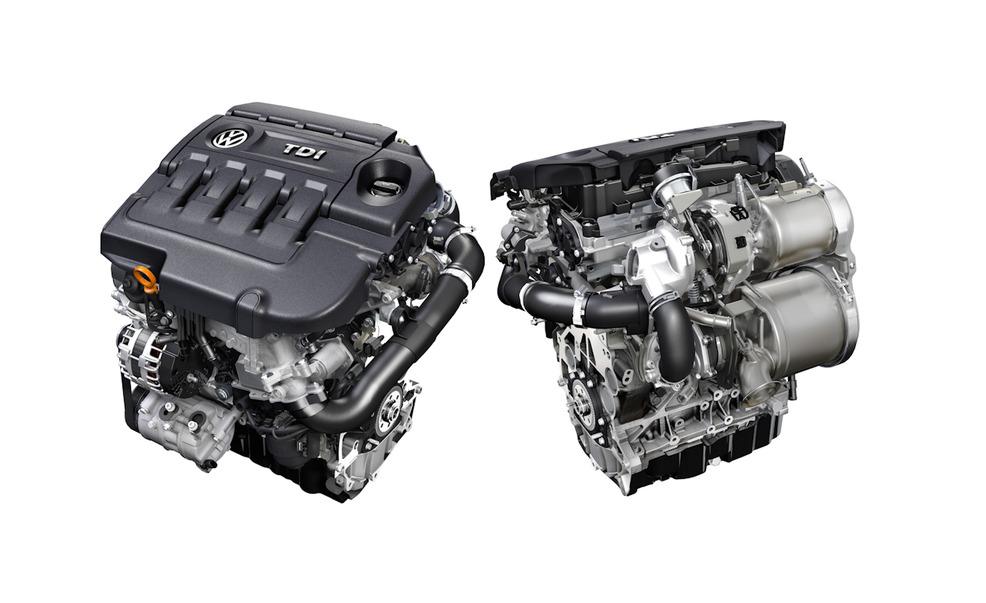Modern diesel power: common myths debunked


Most people are aware of the fuel efficiency benefits of diesel engines but did you know that diesel has really cleaned up its act?
They key advantage to modern diesels is simple: A ton of low-end torque (great for acceleration and towing) but significantly less fuel consumption than an equivalent gasoline-powered engine.

A decade ago, you arguably couldn’t drive a diesel car with a clear conscience. However, since that time, auto manufacturers have invested billions of dollars in research in order to clean up tailpipe emissions.
Modern diesels now use a plethora of technology to run up to 90 per cent cleaner than previously. German manufacturers Volkswagen, Porsche, Audi, and BMW have lead the charge in developing and implementing particulate filters and after-treatments in order to make “clean diesels” a reality and not just a marketing spin.

Clearing up some of the common misconceptions
Diesel engines lack performance compared to gasoline engines
This is not your grandpa’s old diesel pickup truck. These days, modern diesel cars are as quick as, or if not quicker, than their gasoline counterparts. Because diesel engines tend to make their torque at lower revs, by just the seat-of-the-pants feel alone, a diesel car can even seem faster off the line than its gasoline counterpart.
As an added bonus, most manufacturers boasts that their diesel engines have 20 to 40 per cent better fuel economy than comparable gas engines.
Diesel engines tend to be noisy
Diesel clatter is caused largely by the diesel combustion process where the sudden ignition of the injected diesel fuel causes a pressure wave. These days, engineers have mostly reduced the noise through improving the combustion cycle.
Common rail diesel injection systems can now inject more precise amounts of fuel which aids in noise reduction. Combined with increased amounts of sound dampening materials and active noise cancellation audio systems, today’s diesel engines are quiet and unobtrusive.
Diesel exhaust is smelly and dirty
Gone are the days of smoky exhausts from diesel vehicles. Today’s diesel fuel is cleaner than ever. Cleaner than gasoline in fact! It goes by the name Ultra Low Sulphur Diesel (USLD).
VW and Audi say that their TDI Clean diesel technology has practically no nitrogen oxides and lower carbon dioxide emissions compared to 93 per cent of other vehicles.
Combined with a urea-based after treatment cleansing agent, modern diesels produce up to 90 per cent less sooty emissions than diesel engines of yesterday.
A self-cleaning soot (particulate) filter catches whatever else doesn’t get burnt off before it exits the tailpipe. You and your fellow motorists can enjoy a pleasant, smell-free drive.
Diesel engines are hard to start in cold weather
Diesels used to have a reputation as hard-starting in cold weather. Modern diesel engines have improved fuel injection and internal heating elements to keep the engine cylinders warm so starting up in even the dead of winter should not be an issue.
Which cars on the market are “clean diesel”
There are a lot of choices on the market whether you’re looking for a compact car, a family sedan, a luxury sedan, or an SUV.
- Non-luxury compact car: VW Golf / VW Jetta
- Luxury compact sports sedan: Audi A4 TDI / BMW 328d
- Luxury small SUV: Audi Q3 / BMW X3
- Non-luxury mid-sized family car: VW Passat TDI
- Luxury mid-sized car: Audi A6 / BMW 528d
- Non-luxury mid-sized SUV: VW Touareg TDI
- Luxury mid-sized SUV: Audi Q7 TDI / BMW X5 xDrive35d / Porsche Cayenne diesel
- Large luxury sedan: Audi A8 TDI, Porsche Panamera diesel

